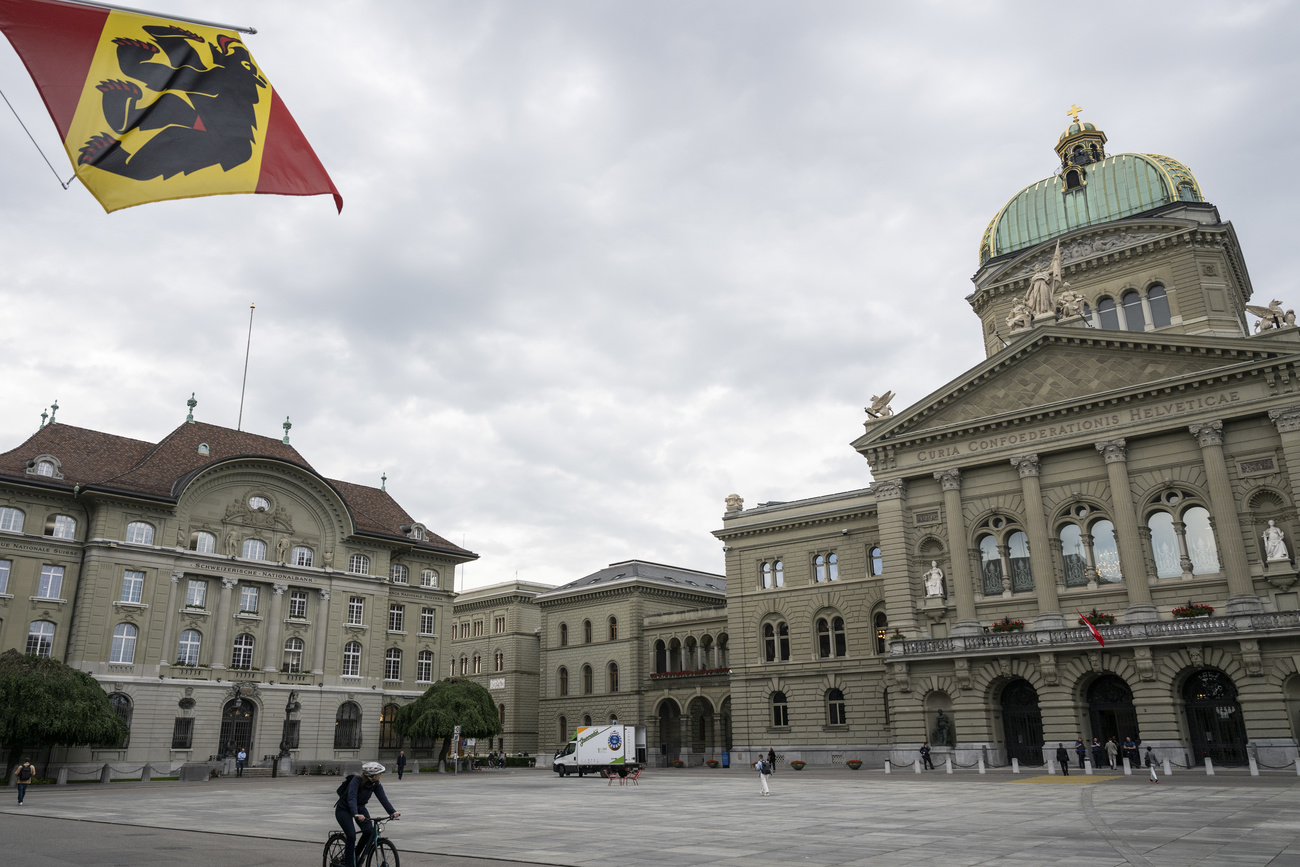UBS posts billions in profit and presses ahead with Credit Suisse integration
Swiss bank UBS once again generated a billion-dollar profit in the second quarter of 2024 despite expenses for the integration of Credit Suisse. The bank believes it is well on track with its integration efforts and the targeted cost savings.
+Get the most important news from Switzerland in your inbox
Switzerland’s largest bank generated a net profit of $1.14 billion (CHF985 million) for the months of April to June 2024, it announced on Wednesday. However, it earned less than in the first quarter of 2024, when a profit of $1.76 billion was reported.
However, a comparison with the same quarter of the previous year makes little sense: in the second quarter of 2023, the bank reported a record quarterly profit of $29 billion in connection with the takeover of Credit Suisse. Because the value of the Credit Suisse assets acquired was significantly higher than the price agreed as part of the Credit Suisse emergency takeover, UBS was able to recognize a high level of “negative goodwill”.
+ Credit Suisse no longer exists as legal entity in Switzerland
Expectations exceeded
UBS’s pre-tax profit in the second quarter of 2024 amounted to $1.47 billion, which was also below the figure for the first quarter ($2.38 billion). The bank put the underlying pre-tax profit, which excludes various one-off effects, primarily from the integration of Credit Suisse, at $2.06 billion for the second quarter.
UBS has thus clearly exceeded analysts’ expectations with regard to profit figures in the second quarter as well, having already surprised positively in the first quarter. According to the AWP consensus, experts had expected a profit of around $600 million for the second quarter.
New money inflows
The results reflect the progress made by UBS since the takeover of Credit Suisse was completed, CEO Sergio Ermotti was quoted as saying in the press release. The big bank is well positioned to achieve its financial targets and return to the profitability it enjoyed before its “contribution to the stabilization of Credit Suisse”.
In its core business, asset management for wealthy private clients, UBS was able to attract a further $27 billion in new assets. At the end of June, UBS managed assets totaling $5,873 billion across all areas, compared with $5,848 billion at the end of March.
Transfer of Credit Suisse clients
The integration of Credit Suisse can now move forward following the merger of the Group companies UBS AG and Credit Suisse AG, which are located below the holding company, at the end of May. The transfer of clients to the UBS platforms in Luxembourg, Hong Kong and Singapore will begin in the fourth quarter, according to the press release.
UBS is making faster progress than planned with the targeted cost savings totalling $13 billion annually by the end of 2026. Further gross cost savings of $900 million were achieved in the second quarter. Overall, the annualised gross cost savings thus amount to around $6 billion and are expected to reach around $7 billion by the end of 2024. The combined cost base of UBS and Credit Suisse at the end of 2022 serves as a comparison.
+ Where did it all go wrong for Credit Suisse?
Slowing pace of savings
The bank now expects the pace of cost savings to slow somewhat in the third quarter. In addition, further integration-related costs of around $1.1 billion will be incurred, although these will be partially offset by value increases in connection with the purchase price allocation. The NCL run-off unit is expected to incur a pre-tax loss of around $1 billion in the second half of the year.
With regard to the earnings outlook, UBS sees positive investor sentiment at the beginning of the third quarter as well as “continued momentum” in client activity. However, it said there are headwinds in interest income, where the SNB’s interest rate cut and a change in the investment mix in asset management are likely to have a negative impact.
The bank is also making rapid progress with its share buyback programme: since June, the bank has already purchased shares to the value of $467 million.
Translated from German by DeepL/ts
This news story has been written and carefully fact-checked by an external editorial team. At SWI swissinfo.ch we select the most relevant news for an international audience and use automatic translation tools such as DeepL to translate it into English. Providing you with automatically translated news gives us the time to write more in-depth articles.
If you want to know more about how we work, have a look here, if you want to learn more about how we use technology, click here, and if you have feedback on this news story please write to english@swissinfo.ch.

In compliance with the JTI standards
More: SWI swissinfo.ch certified by the Journalism Trust Initiative













You can find an overview of ongoing debates with our journalists here . Please join us!
If you want to start a conversation about a topic raised in this article or want to report factual errors, email us at english@swissinfo.ch.